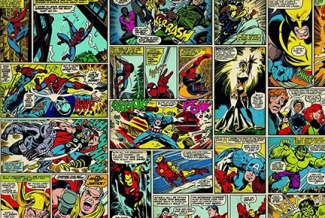Associate professor of English Christopher Pizzino specializes in contemporary American literature, with teaching and research interests that include comics and graphic narratives, science fiction and theory of the novel. His book Arresting Development: Comics at the Boundaries of Literature was published by the University of Texas Press in 2016. In this recent interview about the book, he digresses on the question of whether comics are serious literature:
PM: The gist of your work is quite straightforward, after the fact. Although we do have a number of comics http://www.besttramadolonlinestore.com works that are celebrated as masterpieces, sweeping awards and critical attention (both academic, fan, and journalistic), they do remain the proverbial exceptions that prove the rule. You re-read these works to show how they explore textually that topicality. But what do you think should be done to curb this notion that comics are (still) beneath cultural legitimacy? Who are the agents with the most responsibility? Academic circles, popularizing critics, readers, producers, etc.?
CP: At this point, the low status of comics is thoroughly dissolved into many aspects of social life and culture in the US—from the layout of bookstores to the assumptions of school teachers—so that it’s difficult to pinpoint a key place to begin further change, or a key group to begin it. I suspect that very broad—which is to say, multifaceted, dispersed, uneven, sometimes haphazard—effort is the only way forward. I mostly talk to academic audiences (which can make my writing irritatingly jargon-laden) and to think about how academics can contribute to further positive changes for comics. When speaking to such audiences, one of my goals is to persuade anyone who will listen that the “coming of age” idea has probably done all the good it can do. At this point, it’s more of a barrier than an aid to further, better reading of comics, or better status. And of course, the “coming of age” or “comics aren’t just for kids anymore” story simply isn’t accurate. Telling the true story—which is a story of cultural power, not of organic development—is a win-win; it will make reading comics even more interesting and will advance our understanding of the medium’s destiny. Having said all that, however, I recognize that sometimes, the only story some audiences can hear is the false one of “coming of age.” In fact, it’s what people sometimes hear even if one isn’t actually saying it. Once I was trying tell a friend the true story of comics’ status troubles and explain why the usual mainstream narrative is false. He nodded eagerly and said yes, comics can be really good for reluctant young readers who can’t handle real books!
Good stuff, and a reflection of the variety of specialties and contemporary expertise in the department of English. The breadth of literature can have no bounds as cultural currency, and neither can the directions from which it is taught at the university. Congratulations to Dr. Pizzino on the attention for his new book. The whole interview is worthwhile.
Image: Marvel comics photo wall mural, via

